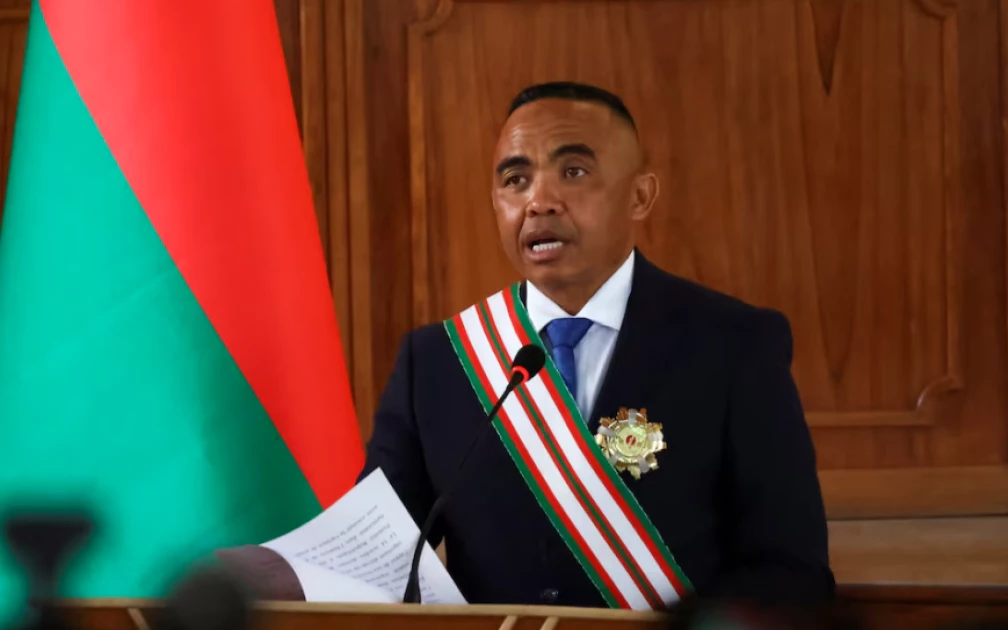Colonel Michael Randrianirina, the leader of Madagascar’s recent coup, was sworn in as president on Friday amid fanfare, military pomp, and jubilant crowds. The ceremony, held at the High Constitutional Court in Antananarivo, came just days after Randrianirina seized control following weeks of youth-led demonstrations that toppled ex-president Andry Rajoelina.
Rajoelina, who fled the country last weekend after being impeached by lawmakers, has denounced the takeover from exile. However, the High Constitutional Court quickly ratified the military’s move, while key security forces defected to Randrianirina’s side.
The coup has drawn condemnation from the African Union and the United Nations Secretary-General Antonio Guterres, who both called for the restoration of constitutional order.
During his swearing-in, Randrianirina vowed to “fully, completely, and justly” fulfil his duties as head of state. He pledged to defend national unity and human rights, promising that the military-led transitional government would oversee the country for up to two years before organizing new elections.
However, analysts are sceptical. “Commitments such as ‘We will hand over in two years’ are weak if unaccompanied by mechanisms that limit the junta’s capacity to entrench itself,” said Ketakandriana Rafitoson, Vice Chair of Transparency International.
Despite initial celebrations, some of the young protesters who fueled the uprising remain cautious. “This is a stage. Our aims haven’t been achieved,” said 18-year-old student Mioty Andrianambinintsoa.
Randrianirina, a commander in the elite CAPSAT unit, gained popularity during the protests for refusing to use force against demonstrators. Madagascar, despite being rich in resources like vanilla, nickel, and sapphires, remains one of the world’s poorest nations—with three-quarters of its 30 million people living in poverty.
As the nation enters yet another period of military rule, the question remains whether the new leadership can deliver the change that its restless youth demand.

